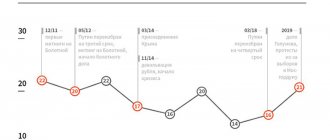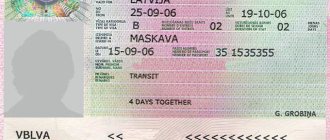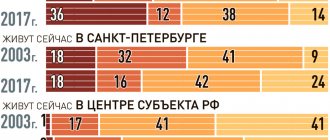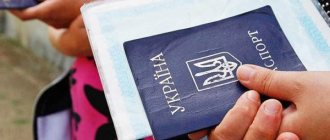Reasons for imposing a ban on police officers traveling abroad
The personnel of domestic law enforcement agencies cannot freely cross the country’s borders for several reasons. These include:
- Maintaining confidentiality. Since most security officials have access to classified information, when leaving, there is a risk of disclosing state secrets.
- Preventing threats to life and the possibility of deprivation of physical freedom of Russian law enforcement officers. Concerns visits to states that maintain an extradition agreement with the United States. This also includes preventing provocations in espionage.
- Some countries have anti-Russian sanctions caused by a hostile attitude towards Russia. The aggravation of the international situation is an important argument for banning travel.
- Caring for the health of staff. The unsatisfactory sanitary and epidemiological situation in some states can lead to diseases.
The security forces themselves believe that the reason for the ban is to stimulate the development of domestic tourism. The inaccessibility of foreign holidays forces Russian security officials to use the expensive services of domestic tour operators that distribute vouchers to boarding houses and tourist centers in Russia.
List of countries where police officers are prohibited from traveling
Below is an exhaustive list of countries prohibited for employees of the Ministry of Internal Affairs to travel to:
- Austria.
- Albania.
- Belgium.
- Bulgaria.
- Great Britain.
- Hungary.
- Germany.
- Greece.
- Denmark.
- Ireland.
- Iceland.
- Spain.
- Italy.
- Latvia.
- Lithuania.
- Liechtenstein.
- Luxembourg.
- Malta.
- Monaco.
- Netherlands.
- Norway.
- Poland.
- Portugal.
- Romania.
- San Marino.
- Slovenia.
- Slovakia.
- Finland.
- France.
- Czech Republic.
- Switzerland.
- Sweden.
- Estonia.
- Prohibited.
- Israel.
- India.
- Jordan.
- Iraq.
- Cyprus.
- Malaysia.
- Myanmar.
- Pakistan.
- Singapore.
- Thailand.
- Türkiye.
- Philippines.
- Sri Lanka.
- South Korea.
- Japan.
- Gambia.
- Ghana.
- Egypt.
- Zambia.
- Zimbabwe.
- Kenya.
- Congo.
- Lesotho.
- Liberia.
- Mauritius.
- Malawi.
- Nigeria.
- Swaziland.
- Seychelles.
- Sierra Leone.
- Tanzania.
- SOUTH AFRICA.
- Antigua and Barbuda.
- Bahamas.
- Barbados.
- Belize.
- Haiti.
- Guatemala.
- Honduras.
- Grenada.
- Dominica.
- Dominican Republic.
- Canada.
- Costa Rica.
- Cuba.
- Mexico.
- Nicaragua.
- Panama.
- Salvador.
- Saint Vincent and the Grenadines.
- Saint Kitts and Nevis.
- Saint Lucia.
- Trinidad and Tobago.
- Jamaica.
- Argentina.
- Bolivia.
- Brazil.
- Venezuela.
- Guyana.
- Colombia.
- Paraguay.
- Peru.
- Suriname.
- Uruguay.
- Chile.
- Ecuador.
- Australia.
- Kiribati.
- Marshall Islands.
- Nauru.
- New Zealand.
- Palau.
- Papua New Guinea.
- Solomon islands.
- Tonga.
- Tuvalu.
- Federated States of Micronesia.
- Fiji.
Order of the Ministry of Internal Affairs No. 360
In 2015, when the bans had just begun to be formalized, the list of countries where employees of the Ministry of Internal Affairs could travel abroad was more extensive than it is now.
The appendix to the order of the Ministry of Internal Affairs of the Russian Federation No. 360 on travel abroad “List of foreign countries to which employees of the Main Directorate and subordinate units can go on tourist trips, taking into account the current international situation” contained the following list of countries:
- Abkhazia.
- Azerbaijan.
- Armenia.
- Belarus.
- Brazil.
- Vietnam.
- Dominican Republic.
- Egypt.
- India.
- Indonesia.
- Jordan.
- Kazakhstan.
- Cambodia.
- Cameroon.
- Kyrgyzstan.
- China.
- Cuba.
- Morocco.
- Myanmar.
- Namibia.
- Nicaragua.
- United Arab Emirates.
- Oman.
- Tajikistan.
- Thailand.
- Tunisia.
- Türkiye.
- Sri Lanka.
- Republic of South Africa.
- South Ossetia.
According to data for 2021, reported by the Association of Tour Operators of Russia (ATOR), with reference to the order of the head of the Ministry of Internal Affairs, Vladimir Kolokoltsev, signed at the end of December 2021, the list of countries to which travel for employees of the Ministry of Internal Affairs is allowed has been reduced to the following states:
- Azerbaijan.
- Armenia.
- Kazakhstan.
- Kyrgyzstan.
- Tajikistan.
- Belarus.
- Turkmenistan.
- Uzbekistan.
- South Ossetia.
- Abkhazia.
- Vietnam.
- China.
- Cuba.
FSB officers also have the right to travel only to these states.
Is there a law restricting travel outside Russia for employees of the Ministry of Internal Affairs?
Legislative regulation of restrictions on travel abroad by employees of the Ministry of Internal Affairs is based on a special order of the Ministry of Law Enforcement Structures of the Russian Federation, issued on December 26, 2017. No special law prohibiting police officers from freely traveling outside Russia was adopted. Therefore, decisions to prohibit foreign travel of personnel are made by the leadership of territorial divisions of law enforcement agencies.
Law of the Russian Federation “On State Secrets”
According to the current Federal Law No. 5485-1 “On State Secrets,” issued on July 21, 1993, the travel ban applies to employees with access to classified information.
What are the established levels of data secrecy?
Security levels are divided into 3 categories:
- The first group includes high command, leadership of territorial units and employees who possess particularly important and secret information.
- The second degree is established for ordinary employees and management personnel, vested with the rights of free access to documents classified as “Increased secrecy.” This information is used by law enforcement officers engaged in operational-search activities and employees of the executive punishment system.
- The third category includes officials and personnel who have received access to state secrets in the past or current time. Secret data is intended for official use only.
Law enforcement officers of the first two categories are considered prohibited from traveling abroad. The maximum period for restricting the right to travel abroad is 5 years. A shorter period is specified in the employment contract. To extend the ban in certain situations up to 10 years, a special interdepartmental commission is created. The decision is made individually for each law enforcement officer.
Reasons for restrictions
The need for such a measure as imposing restrictions on the right to travel abroad is explained, first of all, by the state’s desire to protect the police officers themselves from various kinds of provocations from Western intelligence services. The likelihood of such unfriendly acts in 2021 is extremely high, as the crisis in relations between Russia and the Western world is gaining momentum. The biggest troubles that could be faced by Russian police officers are in countries that have signed an extradition treaty with the United States (there are currently 111 of them). According to established international practice, a person who is not a citizen of neither the transferring nor the receiving country can be transferred to the American justice authorities. Most often, foreigners are extradited to the United States by the United Kingdom, Spain, the Baltic countries and Latin America.
Of particular interest to the intelligence services of the United States and other countries may be employees of the Russian Ministry of Internal Affairs who have access to information constituting state secrets. Therefore, another reason for introducing restrictions on the travel of representatives of this department abroad is to ensure the protection of state secrets. All secret documentation is divided into categories:
- of special importance;
- top secret;
- secret.
Police representatives who, due to the nature of their activities, come across documents classified as “special importance” or “top secret” are automatically included in the category of citizens restricted from traveling abroad. These employees, as a rule, give a written undertaking not to leave the country for 5 or 10 years. If a police officer with access to classified information urgently needs to travel abroad, there must be extremely compelling reasons for this: the possibility of such a trip is considered on an individual basis by the regional leadership of the Ministry of Internal Affairs. Permission in this case can be obtained, for example, if the police officer himself or one of his close relatives requires urgent treatment abroad.
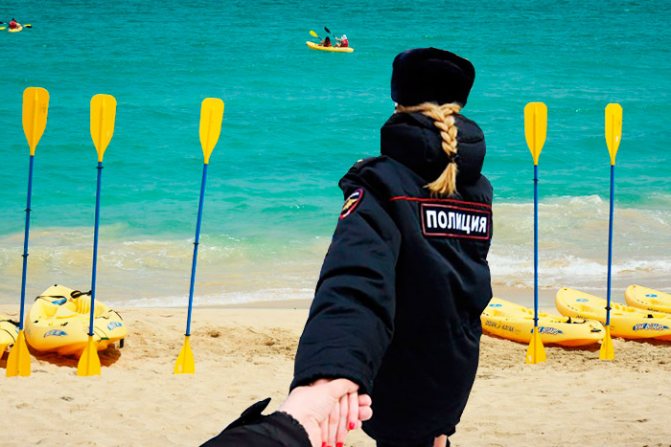
Russian police officers are limited in their ability to travel abroad in 2021
Among Russian police officers (who do not have access to state secrets), however, there is an opinion that the introduction of such restrictions is connected not only (and not so much) with the desire to protect representatives of the Ministry of Internal Affairs from troubles, but also with the support of domestic resorts, where they are now forced to vacation security forces with families. At the same time, the cost of a holiday in Sochi or Crimea is comparable to prices, for example, in Turkey, although the level of service at Turkish resorts is much higher.
The reasons for the specific restrictions associated with the departure of police officers from Russia are not entirely clear.
The question arises of how weighty these reasons are, and what is the likelihood of a threat to the security of the country if police officers do not comply with these restrictions?! The departments that restrict travel from Russia associate these restrictions with the need to preserve state and military secrets. The new bans of the Ministry of Internal Affairs of the Russian Federation are explained by the fact that employees of the department who are in the public service, which implies special responsibility, including a number of restrictions, are associated with the need to preserve state, official and other secrets protected by law.” There are different opinions, and one of them says that: “the decision to restrict travel from Russia was accepted by police officers with understanding, especially since there are enough places for recreation on the territory of the Russian Federation.” Evdokimova Olesya Sergeevna
https://www.eurasialegal.info/index.php?option=com_content&view=article&id=7040:2018–07–12–09–18–23&catid=155:2012–10–04–05–12–32&Itemid =58
Which countries are police officers allowed to travel to?
Which countries are travel allowed?
For security officials who do not have access to confidential information, travel restrictions take the form of recommendations. In some situations they are identified with mandatory orders. Separately, special cases are stipulated when exceptions are made for employees of Russian law enforcement agencies who, for good reasons, are forced to travel abroad.
The strictest restrictions are imposed on the travel of police officers to foreign countries from the NATO bloc and states that have concluded an extradition treaty with the United States of America. Personnel from law enforcement agencies can travel freely to powers friendly to Russia. Due to the hostile attitude, you should not visit Georgia and Ukraine.
The special order of the Prosecutor General's Office No. 201, which acquired legal force on April 24, 2014, contains a complete list of 166 foreign countries where prosecutors are not allowed to travel. Security officials believe that the list of states prohibited from visiting by law enforcement officers will be identical.
On December 26, 2017, the Minister of the Ministry of Internal Affairs of Russia issued a separate order containing a recommended list of foreign powers to which security forces have open access. In 2021, it includes neighboring countries:
- Belarus;
- Kazakhstan;
- Kyrgyzstan;
- Turkmenistan;
- Armenia;
- Azerbaijan;
- Uzbekistan;
- Tajikistan.
Police are allowed to freely visit self-proclaimed republics whose independence is recognized and supported by Russia. These include:
- Abkhazia;
- South Ossetia.
The list is supplemented by non-CIS countries:
- Cuba;
- Vietnam;
- China.
From June 14 of this year, the head of the Ministry of Internal Affairs Vladimir Kolokolnikov included Turkey and Thailand among the countries where law enforcement officers can fly on vacation.
Lists of states

Where can't you go?
Employees of the listed departments may have problems when trying to visit:
- USA and other NATO countries;
- all states that have concluded a treaty on extradition to the United States.
In this case, traveling to such countries is not only prohibited, but also unsafe for the employee himself due to possible persecution.
Which countries can you travel to in 2021?
There are countries to which employees of the Ministry of Internal Affairs, the FSB and other law enforcement agencies can travel without restrictions .
Moreover, in some cases even those who have access to state secrets can go there.
Here is the current list of countries:
- Abkhazia;
- Armenia;
- Azerbaijan;
- Belarus;
- Vietnam;
- Indonesia (Bali Island);
- Kazakhstan;
- Kyrgyzstan;
- China;
- Cuba;
- UAE;
- Tajikistan;
- Thailand;
- Turkmenistan;
- Türkiye;
- Uzbekistan;
- South Ossetia.
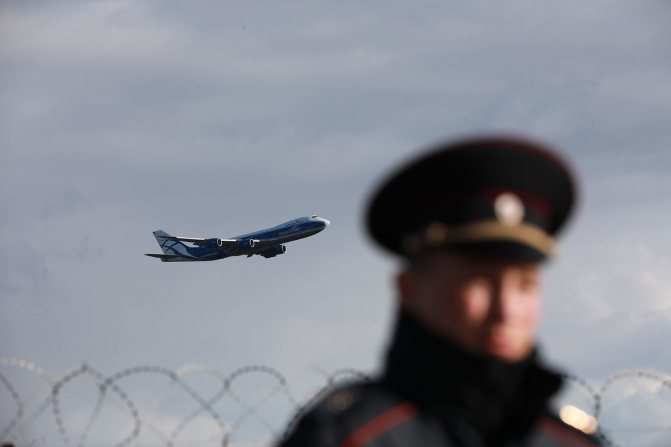
Cases in which departure is permitted
Police officers.
The legal framework recognizes serious illness or death of a close relative, the need for treatment in a foreign clinic, registration of an inheritance, and a number of others as valid reasons for lifting the ban on foreign travel of Russian security officials.
The decision on each individual situation is made by the leadership of the territorial division of the Ministry of Internal Affairs.
Procedure for departure in exceptional cases for police officers
For police officers in public service in the law enforcement agencies of the Russian Federation, the exceptional cases that allow the lifting of restrictions on foreign travel include:
- The need for urgent medical attention. Confirmed by medical certificates justifying the intervention of foreign doctors.
- Death of a family member. A death certificate of a close relative will be required.
The procedure for obtaining an exit permit consists of several stages:
- the approved report form is filled out addressed to the head of the territorial unit;
- The application is accompanied by a package of documents certifying a valid reason for traveling abroad;
- If the decision of the authorities is positive, the police officer receives his foreign passport from the personnel department.
A police officer returning from abroad is required to prepare a trip report with a detailed description of the route. The final stage is the return of the foreign identity card to personnel officers.
Procedure for departure in exceptional cases for FSB employees
For personnel of the Federal Security Service of the Russian Federation, the following are recognized as exceptional situations allowing travel outside the country:
- serious illness or death of a close relative;
- an official call from the parents of one of the spouses;
- entry into inheritance rights;
- alienation of foreign property;
- visiting burial places of family members;
- the need for medical care in a foreign clinic.
The legislative basis is clause 2 of the Instructions to Order No. 179, approved by the FSB on April 17, 2012.
What documents are required to obtain permission to travel abroad?
In a family emergency, when a close relative is seriously ill or has died abroad, an employee of the Ministry of Internal Affairs will need to obtain permission from management to visit a foreign country. To make a positive decision on the report, the security officer must submit to his superiors documents confirming the degree of relationship, a certificate of unsatisfactory health, or a death certificate of a family member living outside of Russia.
If foreign medical assistance is necessary, a civil servant is obliged to prepare:
- the result of a medical examination with an accurate diagnosis, carried out as part of compulsory medical insurance at a local hospital;
- official confirmation by a foreign clinic of its readiness to accept a Russian patient for treatment;
- a document from the health authorities indicating the helplessness of domestic medicine and the need for medical care abroad.
All certificates are drawn up in accordance with legal regulations and certified by a notary. It is allowed to present a certified telephone message from a foreign country as a documentary argument for permission to leave.
Is it possible to visit a “forbidden” country?
Visiting a “prohibited” state is possible for employees of the Ministry of Internal Affairs under exceptional circumstances. To do this, you must obtain permission from your management in advance.
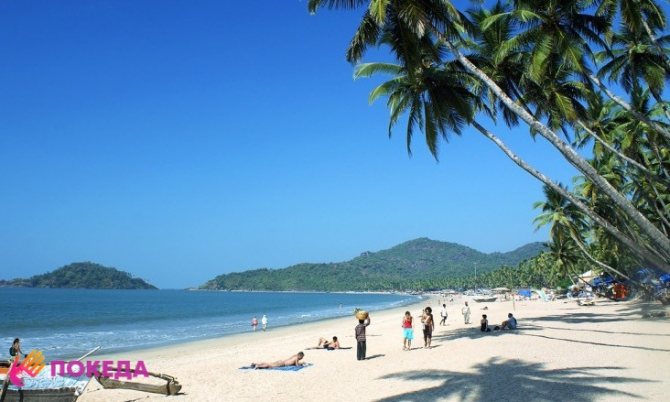
It is unlikely that you will be able to obtain such permission for the sake of a tourist trip. “Exceptional circumstances,” according to an internal order of the Ministry of Internal Affairs, are recognized as a serious illness or death of a relative of a police officer living abroad. Or an illness of the employee himself, which requires treatment in a medical institution of a “forbidden” state. At the same time, the responsibility to prove the existence of such circumstances lies with the employee wishing to travel abroad.
There is the following algorithm of actions:
- write an application in the established form addressed to your management, attaching materials confirming the need to leave;
- wait for a decision on your issue and issue a permit;
- provide permission to the HR department, where you will receive the previously submitted passport.
In the application, the employee must not only indicate the reason for his trip, but also indicate his route in as much detail as possible. If circumstances are such that a police officer needs to travel to another country for a long time, final permission to leave can only be given by higher regional authorities. You need to understand that the final decision lies entirely with the management. And the verdict can be not only positive, but also negative.
After returning from a “prohibited” state, an employee of the Ministry of Internal Affairs is obliged to provide a written report on his stay abroad and return his foreign passport to the personnel department.
Forecasts for lifting restrictions
Restrictions on travel to a number of countries by law enforcement officers, including police officers, are due to the ambiguity of the political situation in the world. The country's leadership is thus trying to protect its citizens both from a physical threat to their freedom and security, and from possible provocations. As a result, it is possible to compromise both officials and the state as a whole. And protect information that is not subject to disclosure, to which a law enforcement officer may have access.
The lists of countries recommended and not recommended for government officials to visit constantly vary depending on the political and social situation in the respective countries. Therefore, it is difficult to predict what these lists will be next year.
It is hardly possible to predict calm on the world political scene in the coming years. As well as the complete abolition of restrictions for security forces. But the political picture is changing, and therefore one can hope for the expansion of the “white” list of countries where Russian police officers will be able to spend their well-deserved vacation.
Responsibility for unauthorized travel abroad
Unauthorized travel abroad.
If a violation of the ban by an employee of the Ministry of Internal Affairs is revealed, an internal investigation is conducted in the territorial division of the law enforcement agency. If an unauthorized visit to a foreign power not on the list of 15 permitted countries is confirmed, the violator must provide a written explanation.
The leadership is considering the reasons that prompted the security officer to go abroad. If they are included in the list of exceptional situations and the employee does not have secret state information, management is limited to a warning or a verbal reprimand.
Strict sanctions are provided for violations involving the disclosure of secret information. The least that a violator will expect is a disciplinary sanction in the form of a reprimand entered into his personal file. Legislative support for punishment is considered to be Articles 50 and 51 of Federal Law No. 342, adopted on November 30, 2011.
How the advisory ban was adopted
The information that a document is being prepared banning the travel abroad of Russian law enforcement officers has stirred up society. Many police officers claim that they received telegrams and letters stating that foreign travel is now prohibited.
According to this document, the following were subject to the travel ban:
- all employees of the Ministry of Internal Affairs;
- employees of the Ministry of Defense (partially);
- law enforcement officers working on drug trafficking cases;
- migration police.
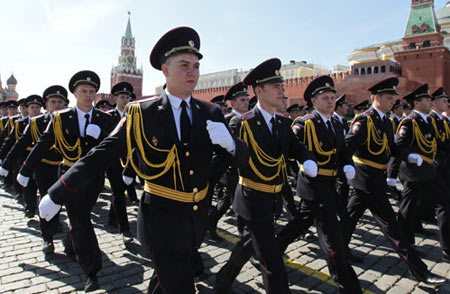
Employees of the Ministry of Internal Affairs
It is believed that the ban was introduced against the backdrop of an acute political crisis in the neighboring state. Officially, none of the high officials indicated the existence of a document confirming the ban.
They started talking about sanctions on traveling abroad for security forces again. After this, the chairman of the State Duma committee prepared and sent an open letter of appeal to V. Kolokoltsev. In this appeal, the Minister of Internal Affairs was asked a direct question: is there a ban on traveling abroad for police officers, and what is it connected with?
What was the motive
Unofficially, the ban on visiting foreign countries by law enforcement officers was motivated as follows:
- Protection of state secrets (this applied to those security officials who have access to classified information).
- Protection of the life and freedom of Russian police officers (relevant for those persons who were going to visit states that have an extradition treaty with the United States).
The indignation of ordinary police officers was caused not so much by the ban itself, but by the existence at the highest level of an absolutely stunning opinion. Thus, according to one high-ranking Moscow official, police officers will simply have nothing to travel abroad against the backdrop of cutbacks.
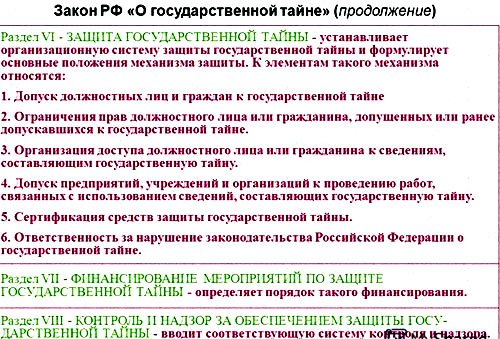
Excerpt from the Official Secrets Act
Contents of the document
At the official level, the document was strictly advisory in nature. The order, according to unconfirmed information, stated that employees of the Ministry of Internal Affairs have the right to travel abroad, but this action is undesirable for them.
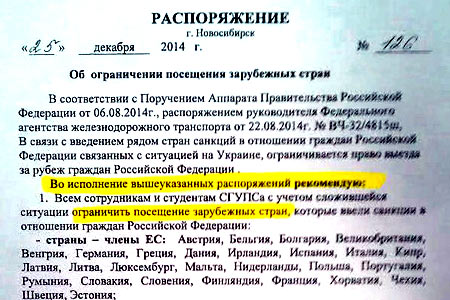
Order banning the departure of employees of the Ministry of Internal Affairs
As often happens in the circles of “lower” officials, the advisory document was mistaken for a real ban. The will of the authorities was carried out. In total, more than 200 foreign countries were banned, in which, according to some sources, US intelligence agents are actively operating. It is noteworthy that the travel ban, according to the advisory document, was relevant even for some CIS countries.
Changes
The issue of a ban on traveling abroad for police officers was again raised at the highest level. It was proposed to enshrine the Travel Restraint Directive at the legislative level for all police officers without exception.
Deputies believed that such restrictions help protect the population from the criminal actions of foreign agents. But the bill was withdrawn because restricting citizens' freedom of movement contradicts the basic provisions of the Constitution of the Russian Federation.
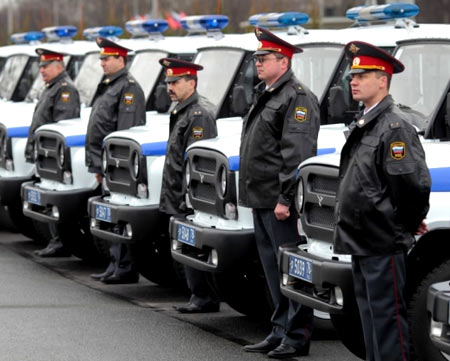
Russian Police officers
If previously the ban on traveling abroad was still advisory in nature, then in 2021 this issue has become acute. Due to the increasingly complex political situation, at the end of 2017, the Minister of Internal Affairs of Russia signed a decree on vacations for employees of the Ministry of Internal Affairs outside our country.
4 million employees of the Ministry of Internal Affairs were banned from vacationing abroad in 2021. If we take into account that the ban also applies to members of their families, then this figure increases two to three times. Now the only thing police officers and their family members know for sure is that they can vacation in Russia.
What was the reaction to the ban?
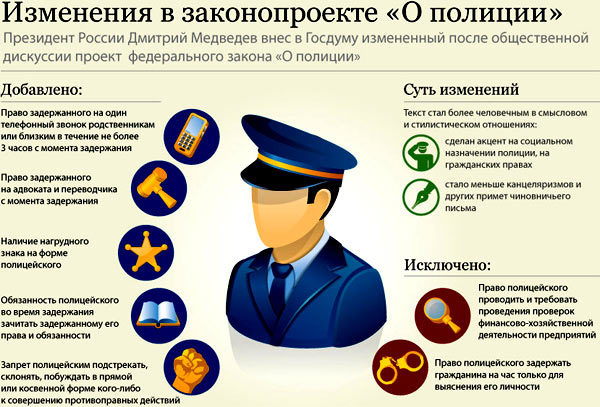
Changes to the Police Law
It is not difficult to find out how the Ministry of Internal Affairs officials reacted to the alleged ban. To do this, you can read forums where police officers and members of their families communicate. The moods are very different.
If the police themselves try to laugh it off, their spouses and children do not hide their indignation. They believe that the main reason for the ban is not the desire to preserve state secrets or the lives of police officers. In their opinion, the state is interested in ensuring that the personal funds of civil servants remain within the country.
According to family members of the Ministry of Internal Affairs employees, they have been deprived or are about to be deprived of inexpensive and high-quality recreation. They rate the quality of services at domestic resorts as average. And the cost of services in Crimea and Sochi is higher than in popular foreign resorts.
Officials' response
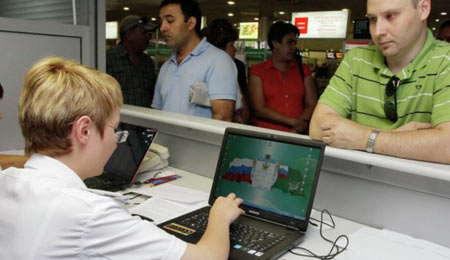
Russian border control point
When it is no longer possible to ignore citizens' dissatisfaction, most officials just shrug their shoulders. The answer is standard: if someone doesn’t like something, he has every right to change his country of residence. Officials try not to talk about the fact that any ban in a non-totalitarian state, no matter how motivated it may be, is considered a violation of the rights of a citizen.
However, at the unofficial level it is said that a categorical ban is not relevant for all employees of the Ministry of Internal Affairs in 2021. A traffic police inspector can travel (but with written permission from his superiors). And a colonel or general working in the investigative department undertakes to forget about “abroad” and vacation only on Russian territory.
Video: ban on security forces leaving the Russian Federation
What the cops say
Opinions among the personnel of the Russian security forces regarding restrictions on foreign travel are divided. Most security officials accepted with understanding the decision of the Minister of Internal Affairs to ban foreign travel. A minority of police officers were outraged by the cynicism of Vladimir Kolokoltsev, who blocked civil servants’ access to proper rest in civilized countries.
In his unofficial statement, the head of the Ministry had the imprudence to note that in connection with the reduction in official salaries, police officers should learn to save money and compare income with the costs of vacations abroad. As an alternative to foreign resorts, he suggested that the security forces pay attention to domestic boarding houses and sanatoriums.
How to obtain a travel permit
The ban on visiting foreign countries applies not only to employees of the Ministry of Internal Affairs. The same requirement applies to persons performing contract service.
But anyone can try to get permission to travel abroad. Algorithm of actions:
- submit a report (for military personnel), the form of which can be downloaded on the official website of the Ministry of Defense;
- submit an application addressed to the head of the department in the prescribed form;
- wait for a decision;
- after receiving permission in hand, contact the HR department with a certificate;
- get a foreign passport.
Any employee of the Ministry of Internal Affairs who has seriously ill relatives there can freely obtain permission to visit any foreign power. The same applies to security forces who have received notification of the death of a loved one living abroad.
An employee who needs an urgent operation that cannot be performed in Russia can leave the Russian Federation.
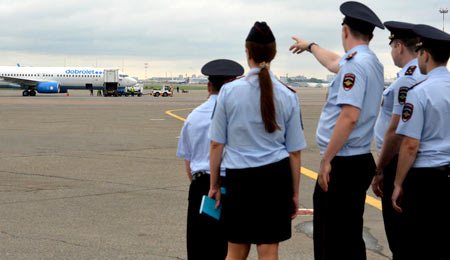
Police officers at the airport
- The decision is made by the head of the department of the Ministry of Internal Affairs. It is documented.
- The next stage is for the Ministry of Internal Affairs employee to familiarize himself with the decision of his superiors. He signs and indicates the date.
- The document has a prescribed form (in the form of a certificate) and cannot be drawn up in any order.
Possibility of lifting the travel ban
It is not expected that restrictions on the travel of law enforcement personnel to foreign countries will be lifted in the near future. On the contrary, the rules in force since 1996 have become more stringent. According to the law adopted on August 15, police officers of the first and second classification categories are prohibited from traveling abroad.
In reality, only a small number of employees of the Ministry of Internal Affairs possess secret state information, the disclosure of which could cause political or economic damage to the country. Most have third-degree security clearances.
According to the legal framework of the Russian Federation, law enforcement officials who are not allowed access to state secrets are entitled to free travel in any direction, including travel abroad. In practice, the admissibility of foreign travel is determined by the leadership of the territorial division of the law enforcement agency. Violators of the established order will face punishment.
The severity of disciplinary action depends on the integrity of the manager. The mildest measure for guilty police officers is a reprimand. This is followed by a reduction in rank or position. The most severe sanction is the dismissal of an employee.
List of countries permitted for employees of the Ministry of Internal Affairs to travel: list in 2021
In 2021, the Ministry of Internal Affairs of the Russian Federation introduced restrictions for all employees to visit specific foreign countries. Also, a list of specific places that police can visit at any time has been published on the Internet.
Below, the article talks about whether Russian security forces can travel abroad, and also lists a list of specific countries for Ministry of Internal Affairs (police) employees to travel to in 2021 and discusses other important nuances.
Confirmation of the ban
Which European or other countries are Russian Interior Ministry employees allowed to travel to today? Police officers have the right to visit only those states whose presence is authorized by a separate order of the Ministry of Internal Affairs of the Russian Federation.
Which foreign countries do the police visit?
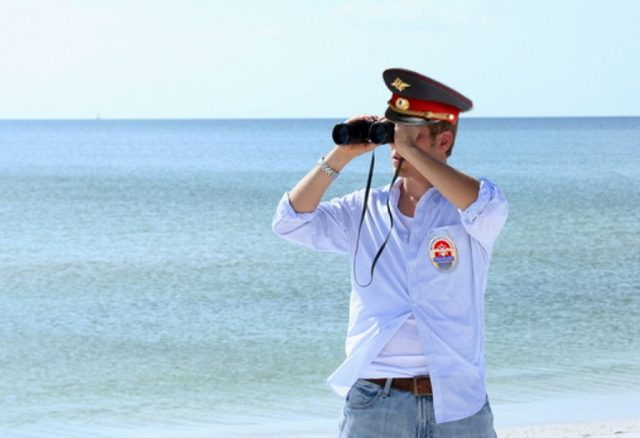
According to the order of the Ministry of Internal Affairs of the Russian Federation No. 360 dated August 21, 2015, in 2021 the official list of foreign countries allowed for entry where employees of the Ministry of Internal Affairs can spend their vacation includes the following states:
- Azerbaijan;
- China;
- Republic of Belarus;
- Vietnam;
- Turkmenistan;
- Cuba;
- Tajikistan;
- South Ossetia;
- Kyrgyzstan;
- Armenia;
- Uzbekistan;
- Abkhazia;
- Kazakhstan.
Will a police officer be allowed to spend vacation in a prohibited place?
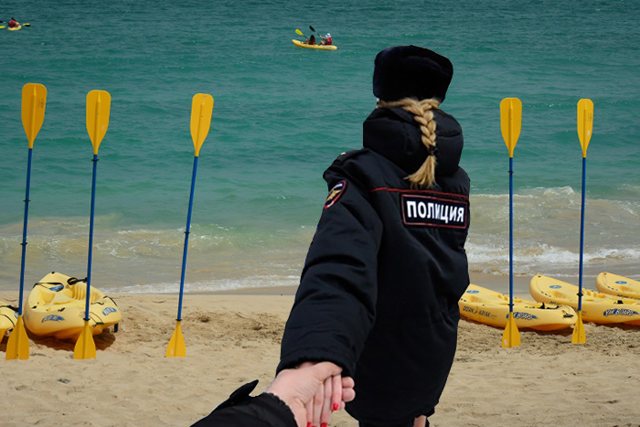
After being hired, police officers receive not only a stable high salary and several benefits, but also certain restrictions. One of these is considered to be a ban on a country where an employee of the Ministry of Internal Affairs could go, for example, on vacation.
Why are travel restrictions being introduced?
The Russian authorities pay close attention to the safety of police officers abroad. This is due to the fact that Russians have been having various troubles in recent years in those countries that have signed a formal extradition agreement to the United States. As a result, for any far-fetched reason, Russians are sent to America.
Reasons for introducing restrictions
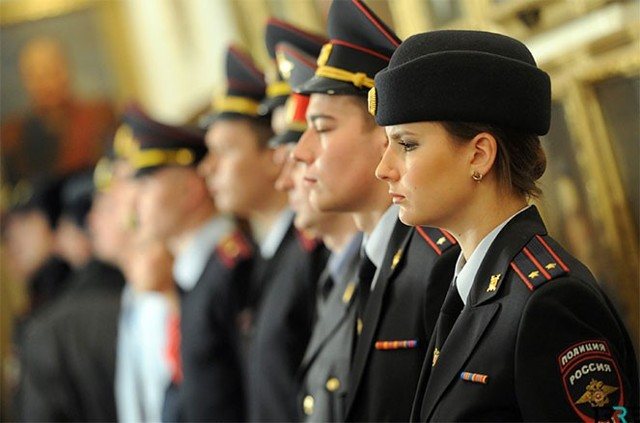
There are 3 reasons on the basis of which law enforcement officers are prohibited from traveling to a certain list of countries:
- maintaining state secrets;
- ensuring personal safety;
- availability of a “Top Secret” clearance form.
Getting permission
Officials who are citizens of the Russian Federation are voluntarily admitted to state secrets (Article 21 of the Federal Law No. 5485-1 of July 21, 1997). Upon receiving clearance, security forces agree to a partial or temporary restriction of their civil rights.
Law of the Russian Federation of July 21, 1993 No. 5485-1 “On State Secrets”
When is travel abroad allowed?
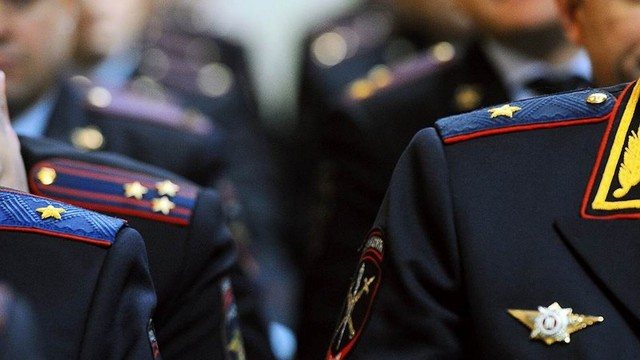
If there are special circumstances, employees of the Ministry of Internal Affairs are allowed to enter 1 of the prohibited countries. Serious illness or sudden death of relatives who live abroad are considered such legal grounds.
Is it possible to go to a prohibited place?
In some situations, police officers are sent not only to countries open to employees of the Ministry of Internal Affairs, but also to prohibited places. In this case, the subordinate receives approval from his superior, which is given only in special cases.
After staying in a country where not everyone can travel, an employee of the Ministry of Internal Affairs immediately hands over his personal passport and submits a corresponding report.
Preparing a police officer to go abroad
Before receiving special permission, employees of the Ministry of Internal Affairs perform the following actions:
- write a report addressed to their own boss;
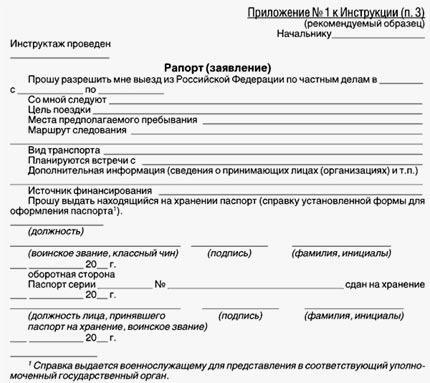
Sample report - provide management with certificates confirming the existence of special circumstances;
- wait for the decision of the authorities, which is provided in writing;
- sign on the reference document with the official permission to leave and indicate the current date on it. This indicates that the employee of the Ministry of Internal Affairs read and agreed with the management’s decision.
Next, the received permit is submitted to the personnel officers of their unit, and then they receive a foreign personal passport there. In case of departure abroad for 16 days or more, a separate permission is obtained from senior management for such an extension.
Lifting travel restrictions
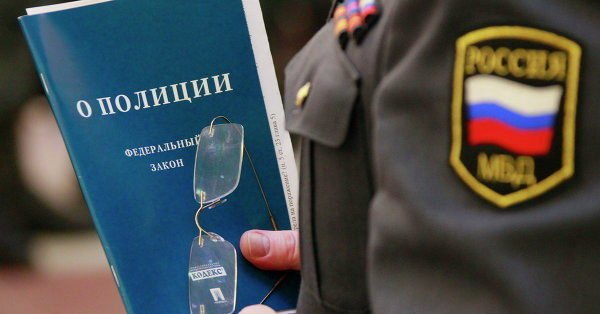
According to Federal Law No. 114 of August 15, 1996, entry into certain foreign countries is prohibited for all police officers with 1st and 2nd security clearance. However, there are few such security forces.
Required Documentation
When completing the necessary documentation to obtain official permission to visit a certain foreign state, they first submit a report to their own boss. This document contains the following information:
- the name of the state to which you are receiving permission to visit;
- the purpose of the applicant’s departure to a specific country permitted (in 2021, such information was also indicated);
- stay time;
- the wife or other family member who is traveling with the police tourist;
- departure time;
- source of money for a trip abroad;
- people with whom you plan to contact abroad.
The boss independently approves the trip of his subordinate, an employee of the Ministry of Internal Affairs, to one of the list of countries officially allowed for travel or rejects the report.
Is there a specific law to restrict police officers from traveling abroad?
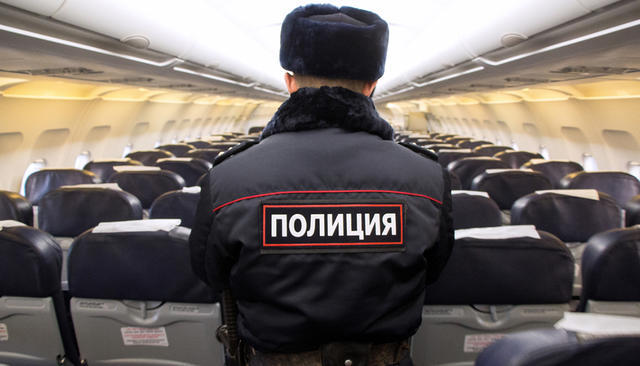
Bill No. 818396-6 from the LDPR on banning the presence of police officers in all foreign countries until the 2nd reading was rejected by the State Duma. As a result, today there is no official ban on security forces traveling abroad.
Types of privacy levels
Security forces are given 3 degrees of secrecy:
- 3 (classified as “Secret”) - received by law enforcement officers;
- 2 (marked on the information “Top Secret”) - provided to operators and those working in the Federal Penitentiary Service;
- 1 (classified as “Of Special Importance”) - given to heads of various departments of the Russian Federation and heads of government departments.
In special cases, travel abroad is prohibited for 10 years. This is done by an interdepartmental special commission.
Conclusion
Today there is no exact information about allowing police officers to visit any state without the approval of their superiors. The list of authorized Asian and other countries for Interior Ministry employees to stay there was changed in 2021 and will be changed this year, depending on the current political world situation.
After all, states with which Russia’s diplomatic relations become heated automatically end up on the sanctions lists.
Theories of normative control in the case of a ban on police officers traveling abroad // Toward the determination in the Luzhnyh case
It was reported in the news that the Supreme Court considered the complaint of a fired policeman (for going abroad without the permission of his superiors) against the order of the Ministry of Internal Affairs, which limited the right of personnel of internal affairs bodies to travel to countries that are unfriendly (as they are understood in the Ministry of Internal Affairs) to Russia.

We are talking about order 705dsp dated 2013 (which is intended for official use and therefore is not available in legal databases), paragraph 1.1 of which (as far as can be judged by the citation of this act in various court decisions) provides for the impossibility of free travel for an internal affairs officer border (you need to submit a report in advance and receive PERMISSION to leave).
A rather cynical retelling of this decision of the Ministry of Internal Affairs can be found in one judicial act (Appeal ruling of the Court of the Yamalo-Nenets Autonomous District dated June 28, 2018 in case No. 33-1693/2018):
Clause 1.1 of the order of the Ministry of Internal Affairs of the Russian Federation dated September 12, 2013 N 705dsp “On certain issues of travel of employees of internal affairs bodies, federal civil servants and employees of the system of the Ministry of Internal Affairs of the Russian Federation” establishes that the decision to travel outside the Russian Federation on private trips are accepted on the basis of a report (application) from an employee of the internal affairs bodies, a federal civil servant and an employee of the system of the Ministry of Internal Affairs of the Russian Federation, which indicates the country (countries) planned to be visited and the intended addresses of the place of stay in it (them) .
This decision of the Ministry of Internal Affairs of the Russian Federation was caused by the deterioration of the international situation, the increasing number of cases in a number of foreign countries of illegal actions against employees of security and internal affairs agencies, which was not disputed by the parties.
In addition, by letter dated February 9, 2021 N 2122 “On certain issues of travel outside the Russian Federation,” the head of the Ministry of Internal Affairs of Russia for the Yamalo-Nenets Autonomous Okrug brought to the attention of the heads of structural divisions of the Ministry of Internal Affairs of Russia for the Yamalo-Nenets Autonomous Okrug about cases of departure of employees, workers , federal state civil servants who do not have access to state secrets outside the Russian Federation without notifying the head of the internal affairs agency; with reference to paragraph 1.1 of Order No. 705dsp of the Ministry of Internal Affairs of the Russian Federation dated September 12, 2013, recommended that employees refrain from traveling outside the Russian Federation on private matters until further notice, regardless of the presence (absence) of access to state secrets (case file 32 ).
As far as I know this story, approximately 4 million employees of the Ministry of Internal Affairs, the Ministry of Defense, the Federal Penitentiary Service, etc. good authorities actually took away the right to choose a vacation destination (or even confiscated foreign passports) and prohibited them from going on vacation to any countries other than the 13 countries directly prescribed.
These include: Azerbaijan, Abkhazia, Armenia, Belarus, Vietnam, Kazakhstan, Kyrgyzstan, China, Cuba, Tajikistan, Turkmenistan, Uzbekistan, South Ossetia. You can travel to these “good” countries. In all other cases, it is actually impossible, since the management simply does not approve the corresponding report that the employee must submit.
And it was against all this obscurantism that M.Yu spoke out. Luzhnykh, who violated the provisions of order 705dsp, traveled to some “unkind” country, he was exposed and fired. M.Yu. Luzhnykh is challenging this order in the Supreme Court of Russia. And predictably loses.
Why? Before answering this question, I want to remind you that in the field of normative control there are two main approaches to what the court should do when considering disputes about invalidating normative acts:
1) when exercising normative control, courts are limited to only checking whether the act was issued in accordance with the competence of the state body, whether it does not contradict an act of greater legal force, and whether the procedure for issuing the act was followed;
2) when exercising normative control, courts check not only the competence and procedure, as well as compliance with acts higher in the hierarchy of legal acts, but can also assess the appropriateness of a particular legal decision, even if it formally falls within the framework of what is permissible (from the point of view of a more significant legal decision). power of regulation).
I believe that genuine normative control in the legal order, in which the principle of checks and balances operates, and the court is recognized as an independent AUTHORITY, can only be carried out within the framework of the second approach.
I do not consider the argument that the judge is supposedly not an official (manager) and is not aware of any specific needs that led to the adoption of a particular decision.
The excellent quality of the civil process - adversarialism - will precisely help to identify which administrative decision could be better: the one adopted by officials, or the one proposed by those challenging the decision of a government body.
Let me give you an example.
Let's say a legal act has been adopted (land use and development rules), according to which a government body intends to allow the construction of certain buildings (for example, churches) within the boundaries of a certain territory (for example, occupied by parks, squares and recreation areas.
The townspeople are against it, they don’t want churches, they want parks and squares. They are challenging the act in court. In the first approach, the court will say: the competence to issue the act has been respected (the government agency can make appropriate decisions), the procedure has been followed (all formal stages of preparing such an act have been completed), and in the name of the Russian Federation - to refuse.
In the second approach, the court will say: okay, let's figure it out. Do we really need churches here? The townspeople prove that there are already four churches in the neighborhood, that they are empty most of the time; surveys show that there are very few believers who follow rituals and go to church at least weekly and there are enough existing churches. And then, on the basis of such a competition, the court says: I was not convinced that it was right to do this, yes, formally everything was observed, but this does not correspond to common sense and the interests of society. Therefore, in the name of the Russian Federation, the act is declared invalid.
Rhetorical question: in which case is the court really a COURT (that is, AUTHORITY), and in which case is it simply a “designer”, a “handler” of the administration’s decisions? The answer, in general, is obvious.
But let’s return to our police officers, who are forced to sunbathe in resorts in the Krasnodar Territory and Crimea, and not in Spain, Croatia or Turkey.
(By the way, evil tongues said that 705dsp was, among other things, caused by the desire to flood these Russian resorts with money, which in general have solvent 4 million tourists (and “siloviki”, as everyone knows from the latest news, at least about billions of FSB employees, police Zakharchenko, etc.) should have gone instead of “enemy foreign countries.” But, in fairness, it should be noted that in 2013 (the year 705dsp appeared) Crimea was still, as they say, “not ours”).
As I already wrote, the Supreme Court refused to accept the former Luzhny police officer.
The grounds for refusal are quite simple and unpretentious in their artlessness:
1) The order was issued in accordance with the powers granted to the Ministry of Internal Affairs of Russia by Article 19 of Federal Law No. 114-FZ, Decree of the Government of the Russian Federation dated December 19, 1997 No. 1598 “On the procedure for issuing permits for departure from the Russian Federation of military personnel of the Armed Forces of the Russian Federation, and also federal executive authorities that provide for military service,” subparagraph 50 of paragraph 12 of the Regulations on the Ministry of Internal Affairs of the Russian Federation, approved by Decree of the President of the Russian Federation of March 1, 2011 No. 248 (repealed from December 21, 2021), and determines the procedure for carrying out activities related to the departure from the Russian Federation of employees of internal affairs bodies and civil servants.
2) The procedure for issuing and enacting the Order complies with the provisions of Decree of the President of the Russian Federation of May 23, 1996 No. 763 “On the procedure for publication and entry into force of acts of the President of the Russian Federation, the Government of the Russian Federation and regulatory legal acts of federal executive bodies” and the Rules preparation of normative legal acts of federal executive bodies and their state registration, approved by Decree of the Government of the Russian Federation of August 13, 1997 No. 1009. The order is a normative legal act of the federal executive body, is marked “for official use”, contains official information of limited distribution related to official activities, therefore its official publication in the prescribed manner is not required
That's all there is to it! Exactly within the framework of the first approach to normative control (in which the court is not POWER, but a so-so appendage to a powerful administration). By the way, it was this very first approach to regulatory control that was recently included in the post. Plenum of the Supreme Court No. 50 (clause 28).
Moreover, further the Supreme Court tries to somehow vaguely argue that restrictions on leaving the Russian Federation for persons HAVING access to state secrets can be established in accordance with the provisions of federal laws. This is true, the law allows for some restrictions on travel for persons admitted to state secrets (this, of course, is almost always stupid, since even mechanics at defense factories have an initial level of access to state secrets), but in 2012 the Supreme Court recognized these restrictions legal.
The most striking thing in the case of the former Luzhny policeman is that he NEVER HAD access to state secrets, but order 705dsp limited the possibility of free travel for him too! Alas, the text of this order is not available, but, as I already wrote, from the quotes of this wonderful document it clearly follows that it applies to all personnel of the Ministry of Internal Affairs, and not just to those admitted to state secrets.
And what does the Supreme Court do, which simply comes up with an argument not even about the INAPPROPRIACITY of such a restriction, but about its ILLEGALITY due to the disproportionate restriction of the rights of such persons in the service of the state as police officers? He says: the argument that order 705dps does not apply to holders of state secrets should be rejected, since this does not follow from the preamble of the order. As I understand it, the Supreme Court simply refused to call black black and affect the departmental interests of the police.
The extremely cautious statement of the judges that order 705dsp must be understood in its normative unity and based on the fact that Minister Kolokoltsev only wanted to limit travel to those who have access to state secrets, I am sure, will be laughed at by the police officials.
Of course, the Supreme Court should have directly declared the order invalid in relation to non-carriers of state secrets for the reason that it disproportionately restricts the rights of all employees of internal affairs bodies without any particular reason. The fact that a clerk from the Yamalo-Nenets Internal Affairs Directorate will go to Turkey for 10 days will not shake the greatness and invulnerability of our Motherland one iota. There is no legal reason to keep 4 million people in line, simply because a couple of ministers wanted it that way.
But this would be possible if the Supreme Court really wanted to become a genuine body of normative control. Unfortunately, he clearly doesn’t want this yet. In the end, there is still someone else to unite him with, but you never know how the special qualification commission will look at such courage...
Are there any changes for the better?
The list of countries prohibited from leaving includes members of the UN, the European Union, the USA, South America and Australia. Travel to alternative destinations is permitted. For example, security forces can freely vacation in the Maldives, Tunisia and Vietnam. The list of countries allowed for employees to travel to in 2020 (according to Order No. 360 of the Ministry of Internal Affairs of the Russian Federation) also includes:
- UAE;
- China;
- India;
- Cambodia;
- Israel;
- Morocco;
- Indonesia;
- Myanmar;
- Bosnia and Herzegovina;
- Macedonia;
- Croatia;
- Palestine;
- Puerto Rico.
Employees of the Ministry of Internal Affairs and the Armed Forces can also go on vacation to warm CIS countries, for example, Georgia, Ossetia and Abkhazia. Those who are passionate about history and architecture will be interested in Armenia and Uzbekistan, and those who like a more European way of life will be interested in Latvia, Belarus and Moldova. The list of taboo powers and those to which law enforcement officers can travel changes over time, as the situation in the international arena is unstable.
Which countries can you still travel to without hindrance, but are not recommended? These include African states. The political situation there is always difficult.
To go on a trip abroad, a serviceman must submit a report and obtain approval from his superiors. However, department management is not loyal everywhere. In one region it is easy to obtain permission, in another you need to fulfill several conditions, in a third it is completely impossible. The order of the Ministry of Defense, which formally is still a recommendation, is interpreted differently in the constituent entities of the Russian Federation.
Interesting Work in America 2021 for Ukrainians
Is it possible to travel to a “forbidden” country? Only under special circumstances. These include serious illness or death of a relative living abroad.
How can you leave Russia during coronavirus?
There is an opportunity for some categories of people to go abroad.
- You can go to foreign countries for study, work, treatment, care for close relatives in those countries where Russians are allowed to enter.
- Truck drivers performing international deliveries and transportation, aircraft and train crew members traveling to other countries. Residents of the DPR and LPR with Russian passports are allowed to travel to their homeland. People can also go abroad for the funeral of their closest relatives, if this category of persons is allowed to enter the country of destination.
- Members of diplomatic organizations.
- People with residence permits and permanent residence in Europe and other foreign countries have the opportunity to fly out and go to their country of residence.
- Citizens of other countries have the full right to leave Russia and go live in their own country. Including, you can obtain and apply for foreign citizenship by investment.
Applying for a national visa category D to enter European countries
The company 100viz.com will help you quickly obtain a national visa category D, which allows citizens of Ukraine, Belarus and Russia to enter Poland and other European countries during the period when the border is closed to tourists.
Also, visa center specialists will help you obtain a Schengen visa category C in those consulates of European countries that began accepting documents for tourist visas in Russia from June 15, 2021.
- You will receive an official invitation from Poland.
- Based on this invitation from a Polish organization, you will be issued a national visa category D, which is issued for work, study and doing business in Poland.
- National D visa holders can travel from Russia and Ukraine and enter Poland.
- If necessary, you can travel further from Poland to other EU countries. The borders of Poland and other European countries have been open since June 13, 2020.
- If the trip is planned for the second half of summer or autumn, the company’s specialists will submit documents to the consulate or visa center of European countries, which began to accept documents for obtaining a Schengen visa in Russia after June 15, 2021.
Registration of a residence permit of a foreign country
For financially wealthy people, an additional opportunity to travel abroad is now the official registration of a residence permit or citizenship for investment or investment in real estate in another country. Russia does not have the right to detain citizens of other countries on its territory even during the coronavirus period. They can also always fly to their country.
Interesting How to obtain migrant status in Russia
Some countries allow this to be done remotely because they need investment and support in their economy. For example, Montenegro allows you to obtain citizenship by investing from 250,000 euros in real estate in the country.
Additionally, you will need to spend an amount of approximately 200,000 euros for paperwork, lawyers' fees, fees and other work of migration specialists in the current difficult conditions during the closure of borders and the spread of coronavirus.
They also provide a remote passport service for Caribbean countries. For example, the service for obtaining citizenship of St. Kitts and Nevis will cost $235,000. Also in demand is a Dominica passport, which can be obtained for $100,000 and Grenada citizenship.
It is important to take into account that these amounts include registration of citizenship for the spouse and children. You can also get permanent residence in Slovakia - 235,000 euros and a residence permit in Estonia - 40,000 euros in the current conditions, without leaving Russia.
You can also get permanent residence in Slovakia - 235,000 euros and a residence permit in Estonia - 40,000 euros in the current conditions, without leaving Russia.
There are 15 more countries where a residence permit and citizenship can be officially obtained through investment or by opening a business and you can start preparing all the documents now, but at some stage you will have to go to this country on your own when the entry regime is relaxed.
Is it possible to travel to a European country with a residence permit?
You can fly from Russia with a residence permit of a European country only to this state if it allows entry to non-citizens of the country. You will not be put on a flight to another country, even if you plan to travel with transfers.
Citizens of European and other countries who have dual citizenship can fly to the country that issued their passport. To board a flight without unnecessary problems, you will need to present a notification from the Federal Migration Service about having a residence permit or second citizenship of the country where the plane is flying.

